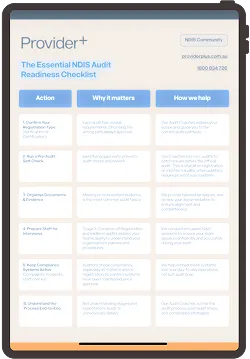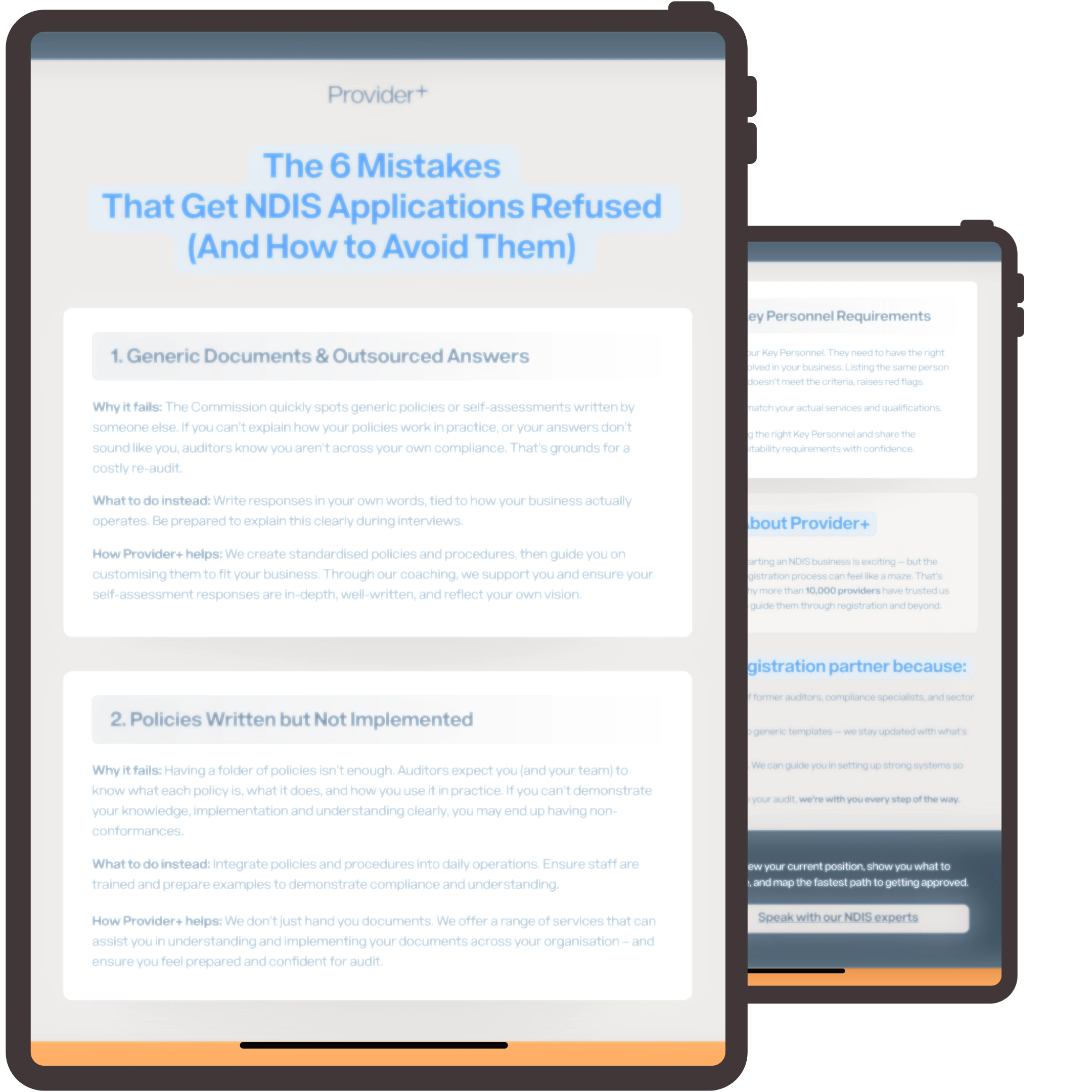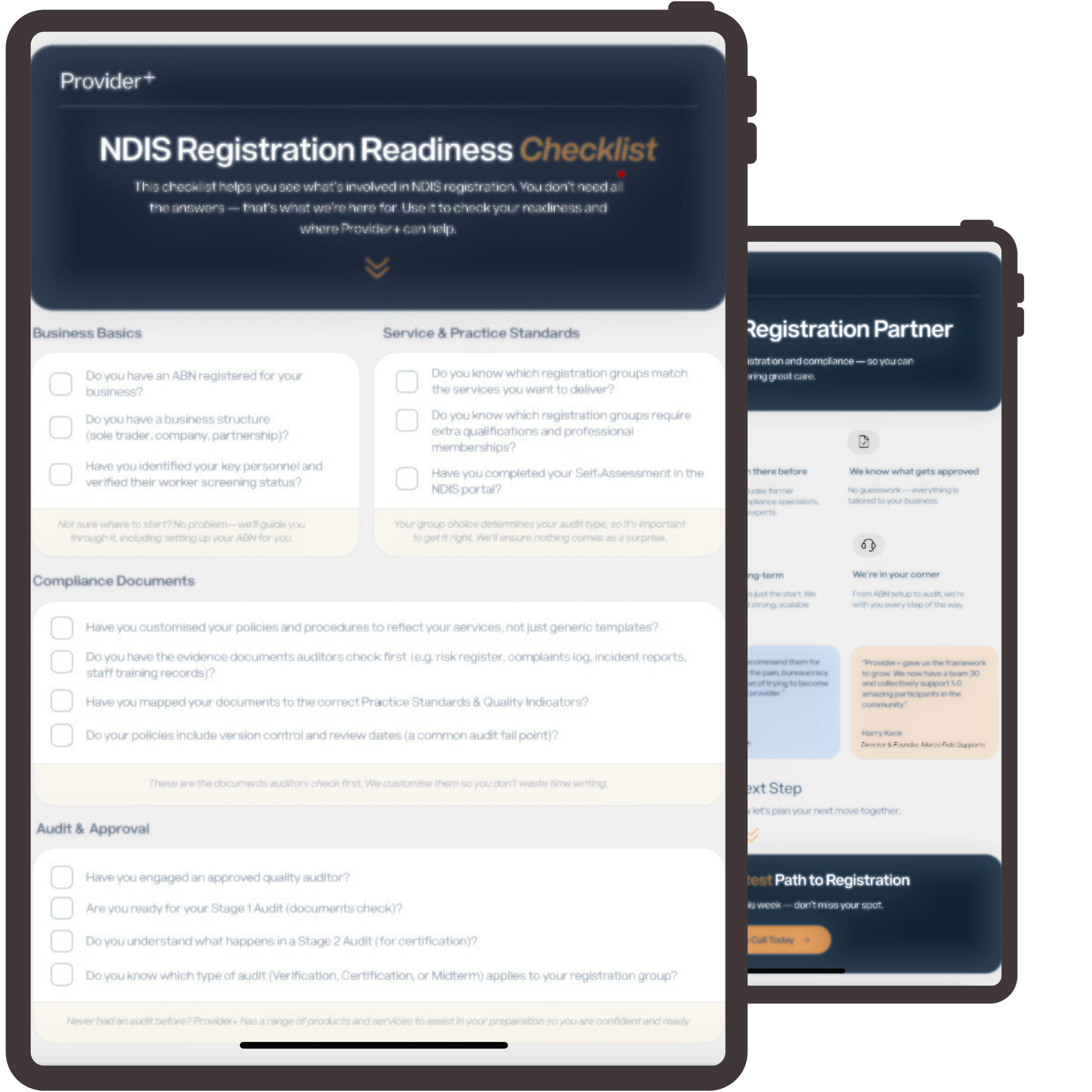NDIS Worker Training: How It Can Safeguard Your Business and Participants
Providing high-quality and safe services is at the heart of every NDIS business. Ensuring that workers are well-trained and competent with up-to-date, evidence-based information on infection prevention and control is crucial for the health and safety of participants and workers and compliance with WHS legislation, standards, and industry codes of practice. Effective worker training safeguards both participants and providers, reducing risks, improving service delivery, and ensuring compliance with NDIS regulatory requirements.
Why Worker Training Matters in the NDIS

Under the NDIS Practice Standards, providers must ensure that all workers have the skills, knowledge, and capability to deliver safe and effective supports. Without proper training, businesses face higher risks of non-compliance, safety incidents, and reputational damage.
Key benefits of a strong training program include:
✔ Improved Participant Safety – Minimising risks related to personal care, medication management, and behavioral support.
✔ Regulatory Compliance – Meeting NDIS Practice Standards and avoiding penalties.
✔ Workforce Competency – Ensuring workers can provide high-quality, person-centered supports.
✔ Reduced Liability – Protecting your business from legal and compliance risks.
How Worker Training Aligns with the NDIS Practice Standards
The NDIS Practice Standards outline specific competency and training requirements for registered providers. Key areas where worker training plays a critical role include:
.png)
1. Risk Management & Incident Response
NDIS providers must identify and manage risks associated with service delivery. Training ensures support workers can: Recognise and respond to risks affecting participant safety. Follow correct procedures for incident reporting and critical response. Maintain compliance with the NDIS Code of Conduct.
2. Person-Centred Support & Rights of Support Workers and Participants
Training helps workers understand the human and legal rights of participants and how to: Provide services in a way that is respectful and upholds the participant's dignity and privacy. Recognise and respond to signs of violence, abuse, neglect, exploitation or discrimination. Support individual choice and decision-making while balancing safety and duty of care.
3. Safe Medication Management
Workers involved in medication administration for participants must receive specialised training to:
- Follow correct dosage and administration procedures.
- Identify and report adverse medication reactions.
- Comply with documentation and storage requirements.
4. Positive Behaviour Support & Restrictive Practices
For workers supporting participants with complex behaviours, training is essential to:
- Implement positive behaviour support strategies.
- Follow guidelines on restrictive practices and minimise their use.
- Recognise triggers and early intervention strategies.
5. Manual Handling & Workplace Safety
Workers must be trained in safe handling techniques to prevent injuries when assisting participants with mobility needs. This includes: Proper lifting techniques to avoid worker and participant injuries. Correct use of hoists, wheelchairs, and other mobility aids. Adhering to WHS regulations and ensuring current work health and safety practices are followed.
6. Cultural Competency & Diversity Training
NDIS participants come from diverse backgrounds, and training helps workers:
- Deliver culturally appropriate and safe services.
- Understand the needs of First Nations, CALD, and LGBTQIA+ participants.
- Promote inclusive and respectful communication.
Implementing Effective Training Programs
For worker training to be effective, NDIS providers should:
- Develop a structured training plan that aligns with NDIS Practice Standards. An interactive online course designed to educate NDIS workers on their obligations can be a valuable component of this plan.
- Ensure new employees complete onboarding before delivering supports. The Worker Orientation Module developed by the NDIS Quality and Safeguards Commission is crucial in the induction process, providing essential knowledge about the NDIS Code of Conduct.
- Provide ongoing professional development to update skills and knowledge. It is important to encourage existing workers to complete ongoing learning opportunities to stay compliant with the NDIS framework.
- Use a mix of training methods (e.g., online modules, workshops, shadowing or 'buddy shifts', hands-on learning).
- Monitor worker competency through assessments and performance reviews.
- Provide training that is tailored to the participant’s requirements.
Conclusion: Investing in Training Strengthens Your NDIS Business
A well-trained workforce is the backbone of a safe and compliant NDIS business. By prioritising worker training to support NDIS workers, providers can enhance participant safety, meet regulatory obligations, and improve service quality. Training is not just a compliance requirement—it’s an investment in the long-term success and reputation of your business.
Registered NDIS providers play a crucial role in ensuring compliance and ongoing professional development. By embedding ongoing learning and professional development, NDIS providers can ensure their teams are equipped to deliver the best possible care and support to participants.





































FAQs
Here is our frequently asked questions.


